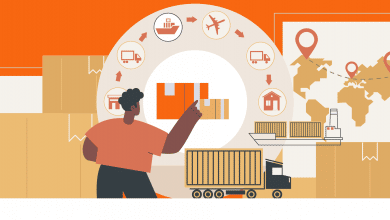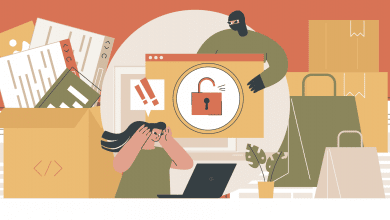What Shipping Incoterms Are and Why They Matter to Importers
FOB, EXW, and CIF Explained

This article contains affiliate links that will allow us to earn commissions without any extra cost to you. Read our full disclosure here.
In international trade, there is something referred to as Incoterms. These are three-letter terms that outline who bears certain transportation costs and other risks. The most common ones you are going to come across are EXW, FOB, and CIF.
These terms have certain legalities attached with them, but for most importers, the important thing to know is that these terms can significantly alter how much you will pay for your shipment. Generally, EXW is the cheapest, CIF is the most expensive, and FOB is somewhere in between.
If two suppliers give you nearly identical prices but one quotes EXW shipping incoterms and the other quotes you FOB, the second quote will cost you significantly less. Not being aware of the cost implications of different shipment and Incoterms is where many new importers get burned. In this article we'll break down exactly what these terms all mean.
Related Reading: The Ultimate Guide to Creating an Amazon FBA Shipping Plan
What Are Incoterms Used For?
The term Incoterms is short for “international commercial terms.” These are globally recognized terms published by the International Chamber of Commerce, and their main function is to identify the obligations of buyers and sellers.
For example, FOB (the most common trade term) means that your supplier will be responsible for your goods until the time those goods arrive at the specified port and after that you will be responsible. This is why you will always see FOB quoted as FOB Some Port, i.e. FOB Shanghai. If the goods all catch fire on the way from your supplier's factory to the port of Shanghai, then your supplier is responsible. Conversely, if the goods fall off the boat on the way from Shanghai to your port, then you're responsible.
The Incoterms and their meanings may be revised, depending on the governing authority. The list was revised in 2020, with the following Incoterms included:
| Incoterms for All Modes of Transport | |
|---|---|
| EXW | Ex Works |
| FCA | Free Carrier |
| CPT | Carriage Paid to |
| CIP | Carriage and Insurance Paid To |
| DAP | Delivered at Place |
| DPU | Delivered at Place Unloaded |
| DDP | Delivered Duty Paid |
| Incoterms for Sea and Inland Waterway Transport | |
|---|---|
| FAS | Free Alongside Ship |
| FOB | Free on Board |
| CFR | Cost and Freight |
| CIF | Cost Insurance and Freight |
This article will focus on the three most common Incoterms for importers: EXW, FOB, and CIF.
Related Reading: The Ultimate Guide to Importing from China
EXW (Ex Works: Place of Supplier)
EXW means that you as the buyer are responsible for arranging to have your goods picked up at your supplier's factory and delivering them to your destination (and all of the other costs in between). Your supplier's factory may be hundreds of miles away from the seaport where they will be loaded onto a ship. This means you will be responsible for this overland freight. If your supplier lacks certain export documentation, you will be responsible for this as well. You will also pay for all sea freight and other import/transportation fees in your destination country.
Generally, EXW shipment terms compared to FOB shipment terms will cost you hundreds of dollars more.
FOB (Free on Board: Chinese Port of Shipment)
This is the most common shipment term. Your supplier pays to have your goods loaded onto a ship in China, including the local transport costs in China and the cost to clear the goods for export. You pay for the cost of sea freight and importing your goods into your country (e.g., customs, taxes, domestic transport, etc.).
CFR (Cost and Freight: Your Home Port) and CIF (Cost Insurance and Freight: Your home port)
CIF and CFR are essentially the same, except that CIF includes the cost of insurance and CFR does not. For CIF and CFR freight, your supplier will pay all the costs to get your shipment from their destination to the desired port in your destination country. You will stay pay for any import fees and overland transportation in your destination country.
How to See How Much Your Competitors Are Importing from China
Want to see how much your competitors are importing from China?
Custom import records are public information in the United States, and there are multiple tools that allow you to simply search for a company name and see exactly how much these companies are importing from China.

My favorite tool for this is Jungle Scout's Supplier Database tool which costs less than $50 a month (other more expensive options include Import Genius and Panjiva). These tools will neatly summarize all of the information included on a particular company's Bill of Lading information such as product type, quantity, and supplier name/address.
A Real-World Example
Here is an example of a quote I received for EXW shipping terms for a couple of pallets of goods from Fujian province in China to Vancouver:
The total cost of sea freight is just $98. However, look at all the miscellaneous fees totaling $300. The bulk is for the truck freight to get the goods from my supplier’s factory to the port. Like in Canada or any other country, overland freight is expensive in China.

Most other fees are associated with preparing various documents, such as the Bill of Lading. Adding to the cost, I can expect to be hit with about another $150 in fees when the goods arrive in Canada from either the Freight Forwarder and/or the receiving warehouse. Ultimately the total cost of freight will be around $631, with only $98 of that cost being for sea freight. Read more about international sea freight in our step by step guide.
Disadvantages of EXW Freight
A big reason why the costs above are so high is that the shipping terms were EXW Fuzhou. As mentioned above, this means that the factory will manufacture all of the goods, and I have to come to their place to pick them up. They’ll handle almost nothing in terms of freight. It’s akin to buying a bed on craigslist with the stipulation “Must pick up.”
Now contrast the term people are more familiar with, FOB xyz Port. For an FOB shipment, say FOB Ningbo (a major port in China) the supplier will drive the goods from their factory to the local port, load it on the ship, and pay all of the document fees. I’ll pay for the sea freight and all of the fees associated with the shipment once it arrives in my port. Following the same craigslist example, it would be like buying a bed on craigslist with the stipulation “Will drop off at your house, but I won’t help move it up your stairs and into your bedroom.”
More Suppliers Are Quoting EXW Shipment Terms
As profit margins in China are being driven down, more and more suppliers are quoting prices with EXW shipment terms. If you are quoted EXW shipment terms, asking for FOB shipment terms should be your first negotiation point. If you are comparing prices from suppliers, ensure that you are always comparing similar shipment terms. If a supplier quotes you EXW, you can simply ask for their FOB price.
Do Freight Forwarders Care About Shipping Incoterms?
No matter what your shipment terms are, nearly any freight forwarder will be able to easily handle the delivery of your shipment (including the pickup of your shipment from your supplier's factory if you have EXW shipment terms). However, they will charge you more or less, depending on your shipment terms.
Conclusion
What has your experience been with shipment terms: are you mostly quoted in FOB or EXW? Do you have any questions regarding Incoterms? If so, feel free to share and comment below.
For more information about shipping, you can watch this video:






Hi Dave,
What term would you recommend (EXW or FOB) if you wanted to split your shipment? (1/2 of the units via Air and the balance by Sea) . (Using a freight forwarder)
Whichever the supplier gives you the best price on relative to your potential added shipping costs :) Probably will be EXW though.
thank you so much dear i learned today many info about shipping
Thanks for your info! Where to find Freight forwarder? Should I ask Chinese suppliers if they have any?
If you choose EXW and paid for most of the cost, shouldn’t that be the most expensive one instead of CIF? For CIF and FOB, as you mentioned above, don’t suppliers pay for part of the cost?
Sorry for my ignorance as I’m an completely green to buying on Alibaba. I am now concerned because I placed my first order and doing was as much as my product. I assumed it would do to my home as that is the address I put in. Will there be more fees I need to pay once the items arrived in the US, and will I have to make arrangements to get the items from a different location?
Hi. From the FOB example, would it be an alternate analysis to say that its like the seller carrying the shipment from his house to a taxi cab and the buyer pays for the cab ride and gets to haul the product into his house? Or I misunderstood FOB?
Haha yes, that’s about right!
So how does DAP fit in here, Or DDP? What is the definition of “place of destination”?
Great article on shipping incoterms! It’s important to understand the different terms and their implications when it comes to international trade.